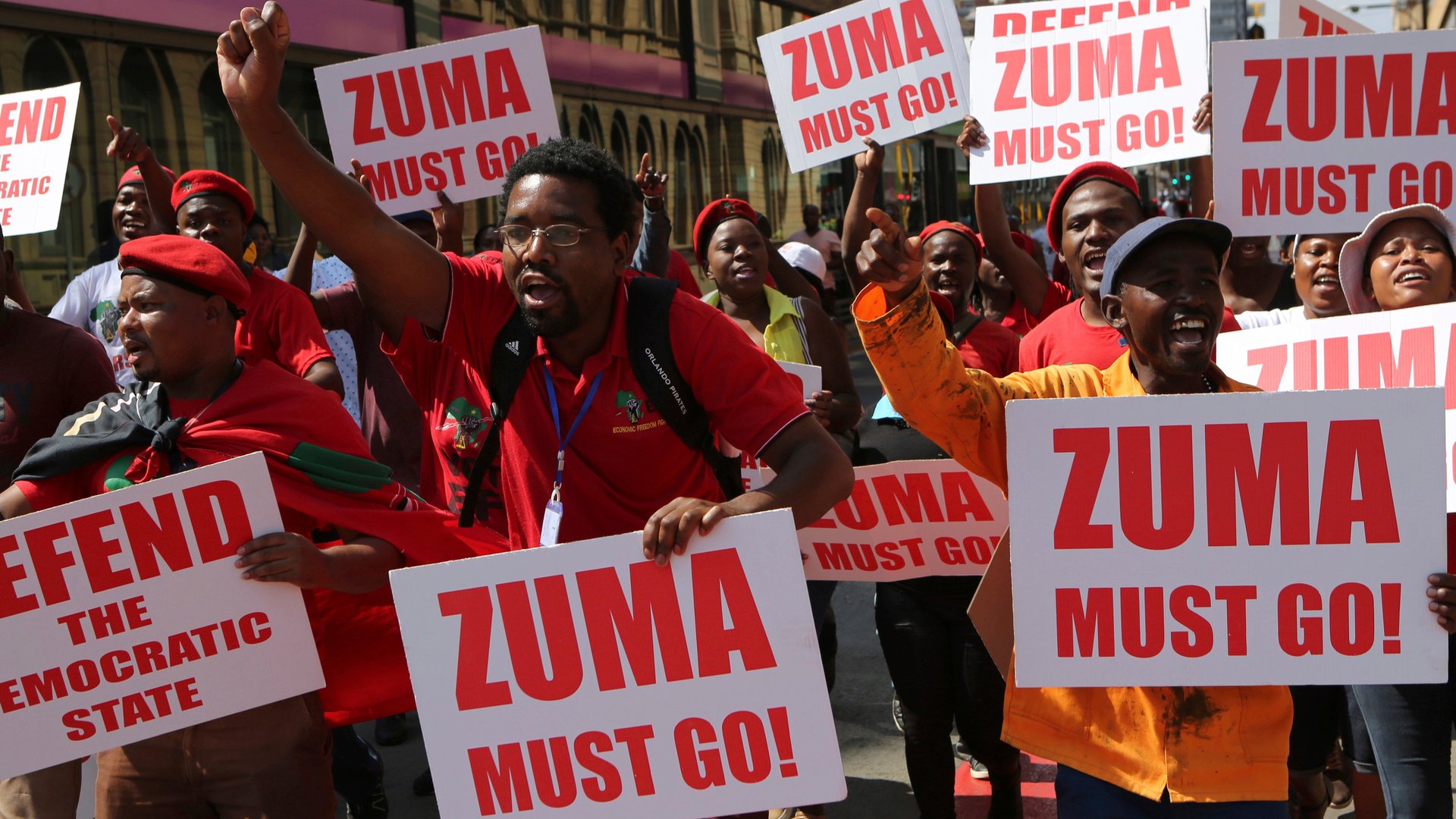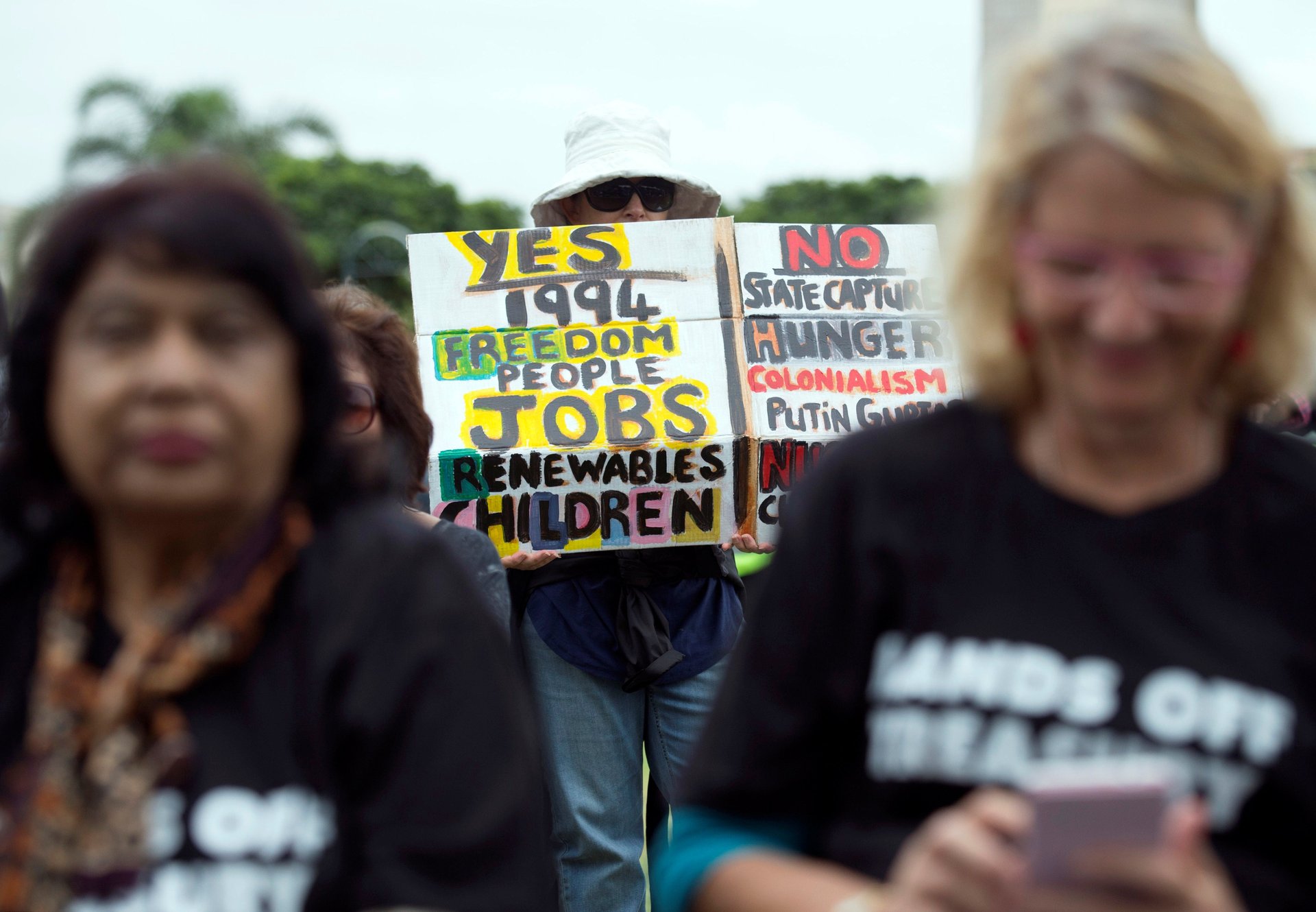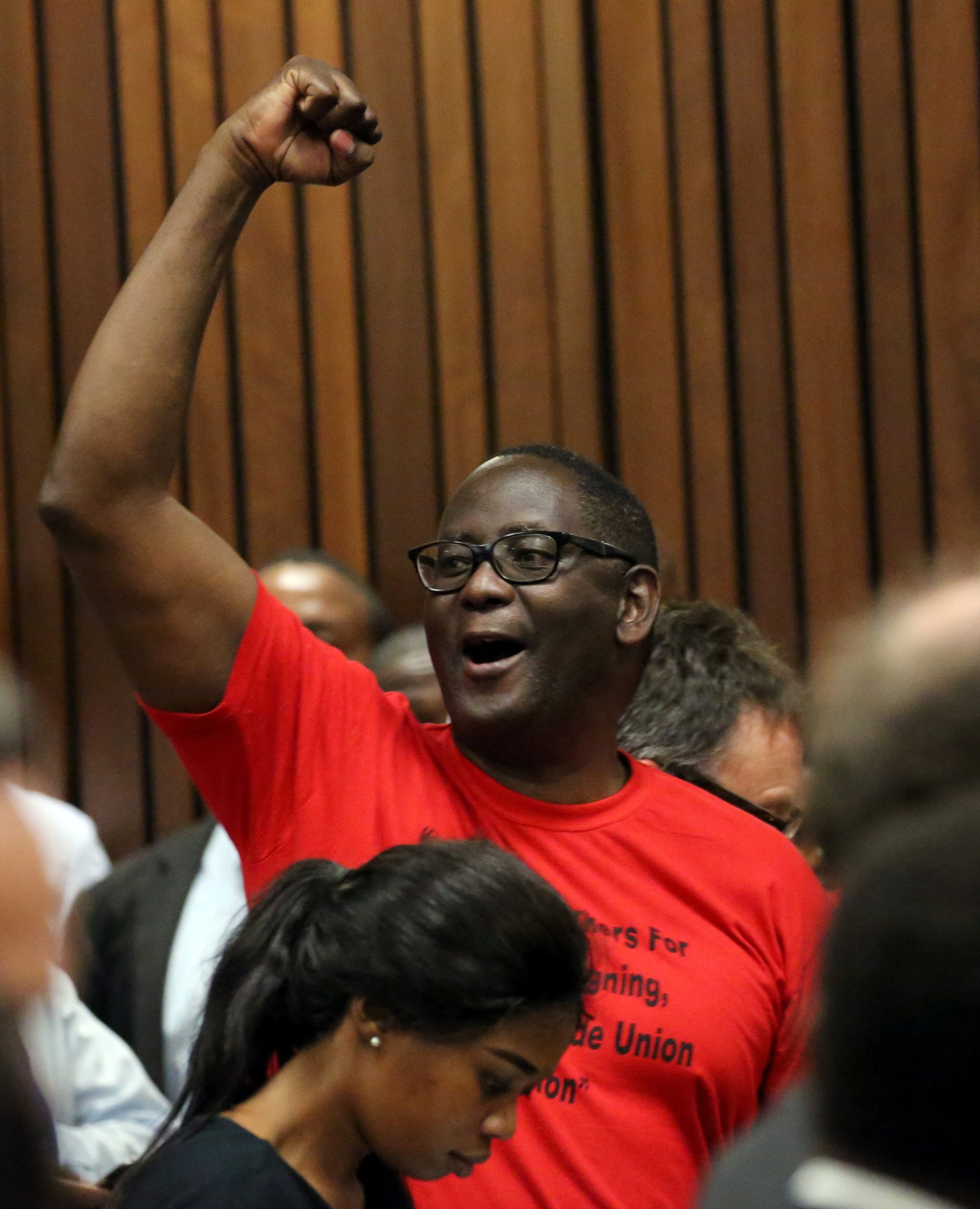South Africa’s Jacob Zuma may finally have to step down after a report confirms corruption allegations
Pretoria, South Africa


Pretoria, South Africa
Not since the negotiated settlement to end apartheid have such a diverse group of South Africans rallied together behind a cause. Several thousand people gathered in Pretoria on Nov. 2, to demand that president Jacob Zuma step down, and cede control of the state institutions he has used for his own political gain.
Along the streets of South Africa’s capital, the red berets of the Economic Freedom Fighters sang as they marched. A short distance away, the blue T-shirts of the Democratic Alliance. Inside a cathedral, an influential gathering of activists, business leaders, religious leaders and politicians from Zuma’s own party, demanded an end to corruption. On the next block, a court battle was underway, as Zuma tried to suppress the release of evidence of his alleged wrongdoing and state capture, the term used to describe hijacking of the state for personal and political interests.
“It’s historic, it’s unprecedented. The last time they came together like this was to hammer out the negotiated settlement,” said political analyst Karima Brown. As a journalist during the fall of former president Thabo Mbeki, it was Brown who saw the writing on the wall long before the formal announcement was made. This time, she sees a president whose power has been over-estimated as he fights a political battle on multiple fronts.

“It’s a momentum that can only increase and the trajectory for president Jacob Zuma doesn’t look good. He is on the back foot, he’s far from unassailable.” A day earlier, the country’s largest union National Education Health and Allied Workers Union (Nehawu), mostly state employees, asked Zuma, who is in effect their boss, to resign in the interests of the ruling party and the country. On the same day, Gwede Mantashe, the secretary general of the ANC, echoed this saying that calls for Zuma to step down should appeal to the president’s conscience. A former Constitutional judge went further saying Zuma and the party’s national executive should all step down if corruption is to be rooted out.
Zuma showed signs of buckling on Nov. 2 when his attorneys made the surprise announcement that they would no longer fight the release of a damning report on state capture. Then a bench of three judges in the Pretoria Magistrate’s Court ruled that the report by the public protector must be released by 5 p.m. It was online before then, its contents confirming the rumors of cronyism that have swirled around Zuma. Opposition parties and activists inside the court celebrated from the benches, while outside several dozen protesters broke into a song and dance on the street. Then they marched to the Union Buildings, the seat of government, to demand that Zuma leave.
The term state capture entered South Africa’s political lexicon as Zuma faced allegations that he has allowed his friends, the Gupta family, to use the state for their own benefit. Several whistle-blowers have come forward saying that the true seat of power in South Africa, is at the Guptas’ home in the affluent Johannesburg suburb of Saxonwold. The Guptas are alleged to have captured the state through the state energy supplier Eskom, South African Airways and by enjoying the privilege to handpick cabinet ministers who would do their bidding.

The state capture report, compiled by former public protector Thuli Madonsela as she was leaving office, confirms the rumors swirling around Zuma, his son Duduzane Zuma and the Guptas. The report contains interviews confirming that the Guptas had a direct hand in Zuma shuffling finance ministers last December. It reveals just how the Guptas became a coal supplier for the state energy utility Eskom, and how they tried to reroute South African Airways to make way for Jet Airways, a Gupta-linked carrier. All of this and more, allegedly with Zuma’s blessing. In at least one instance, Zuma was allegedly in the next room as the Guptas offered cabinet posts to a lawmaker they thought was malleable enough to do their bidding, according to the report.
As South Africans comb through the 355-page report, Zuma has two options to hold on to power, said Brown. He can shuffle cabinet again to surround himself with allies. Or, in a more extreme case, he can use the volatility in the country as an excuse to strengthen security measures, and suppress further public activity. Both are extremely risky and come with high costs, said Brown.
One veteran ANC member, and the son of one of the party’s stalwart leaders, believes the day of political revelations and protest are a celebration of the country’s democracy. Max Sisulu, the former speaker of parliament who quit as Zuma entered his second term, believes the power still lies with the people.
“Elections are the way to remove a party, the way to remove the people,” Sisulu told Quartz as he left the cathedral. “We live in a democratic country, if the president is unwilling to voluntarily step down then the people have the right to use vote to make him step down.”